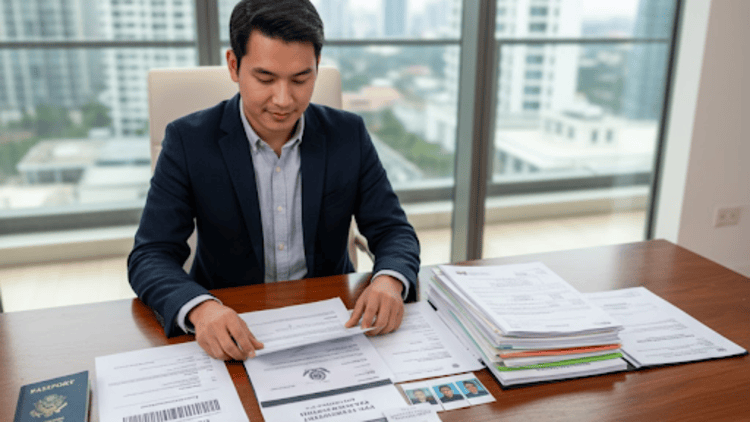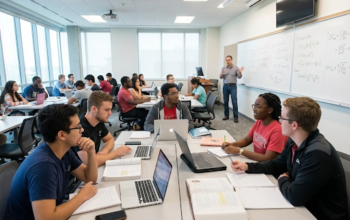Preparing for the F-1 visa interview can be stressful, especially when you’re unsure about what documents you need to bring. Knowing precisely what to prepare not only helps reduce anxiety but also boosts your confidence during the interview. Being organized with the proper paperwork is crucial because missing any key documents can delay or even jeopardize your visa approval.
This guide will help you through the essential documents to bring, helping you feel ready and well-prepared.
Essential Documents for the F-1 Visa Interview
Now, let’s dive into the critical documents you will need for your F-1 visa interview:
1. Valid Passport
Your passport should be valid for at least six months beyond your intended stay in the U.S. Without a valid passport, your visa application will not be processed. Make sure that your passport is up to date before scheduling the interview.
2. Form DS-160 Confirmation Page
The Form DS-160 is your visa application form, which you must complete online before your interview. After submitting it, you will receive a confirmation page with a barcode. Please bring the confirmation page to your interview.
3. Visa Appointment Confirmation
After scheduling your visa interview, you will receive a confirmation of your appointment. Please print this confirmation and bring it to your interview.
4. I-20 Form
The Form I-20 is issued by the U.S. educational institution where you plan to study. This form confirms your acceptance into the school and is required for your visa application. Ensure the form is signed by a Designated School Official (DSO) before attending your interview.
5. Visa Fee Payment Receipt
You will need to pay the visa application fee before your interview. After the payment, you will receive a receipt. Keep this receipt safe, as you will need it to confirm that you’ve paid the fee.
6. Passport-sized Photographs
The U.S. visa process requires you to provide two passport-sized photos that meet specific requirements. These photos should be recent, with a white background, and meet other standards outlined by the U.S. embassy or consulate.
7. Proof of Financial Support
One of the key questions in the F-1 visa interview is about your ability to fund your education and stay in the U.S. You’ll need to provide documents that show you can cover tuition fees, living expenses, and other costs. This may include:
- Bank statements (personal or from a sponsor)
- Affidavit of support (if someone else is sponsoring your education)
- Financial guarantee letters
- Proof of scholarship (if applicable)
8. Academic Transcripts and Certificates
You will need to provide your academic transcripts and certificates from your country of origin. These documents help the consular officer understand your academic history and whether you meet the entry requirements for your chosen U.S. institution.
9. Standardized Test Scores
If your program requires standardized test scores, such as TOEFL, IELTS, GRE, or GMAT, you will need to bring your official score reports to the interview. These scores demonstrate your proficiency in English or other subject areas.
10. Evidence of Ties to Your Home Country
The U.S. wants to be sure that you will return to your home country after completing your studies. Therefore, it’s important to show that you have strong ties to your home country, such as:
- A job offer or letter of intent from an employer
- Family connections
- Property ownership
These documents help the consular officer understand your intent to return home after finishing your studies.
Connecting Document Prep and Interview Questions
One common query candidates have is, “What are F1 visa interview questions?” These often revolve around your documents and plans.
For instance, questions about your financial ability will be easier to answer if you have clear bank statements and scholarship letters. Being prepared with documents also helps when you explain why you chose a specific university or program, backed by your acceptance letters and SOP.
Conclusion
Having the correct documents for your F-1 visa interview is crucial for a smooth application process. Staying organized and prepared will increase your chances of approval and bring you closer to your educational journey in the U.S.
For more information visit us : regulararticles.com



